The act of invention is rarely just about machines or ideas. It’s also about survival and resilience, and finding ways to imagine freedom when the world insists on restraint. In Raging Clouds, Yudori gives us a heroine who embodies that tension.
Set in 16th-century Netherlands, Amélie is married to a merchant named Hans. Beneath the roles she plays as the wife and lady of the house lies a restless mind, one given to scientific enquiry. Amélie wants to fly. Literally, emotionally, and spiritually. But she is forced to hide her fascination with flight, as she goes about pondering the mechanics of air currents, beneath the suffocating expectations of her times.
The predictable rhythm of her life changes when Hans returns from a business trip with a new mistress named Sahara. Although she feels jealous and angry, it also gives Amélie time to pursue her interests as Hans’ attention is diverted.
This is one of the first instances of contradictions, the forces of push and pull working together to produce positive outcomes—a running theme in the graphic novel. Out of resentment and necessity grows a reluctant bond between the two women, one that evolves into a fragile partnership, marked by missteps, moments of revelation, and a recognition of shared vulnerability.
The genius of Raging Clouds lies in Yudori’s refusal to make her characters paragons of virtue. And here, again we see those contradictions. Amélie is sympathetic yet prickly, brilliant yet selfish, capable of cruelty as much as tenderness. Sahara is drawn with similar complexity. She is both victim and agent, hardened by exploitation but still capable of friendship. Their uneasy alliance exposes not only the brutality of patriarchy but also the moral compromises women must make in order to endure it.
Visually, Yudori’s style accentuates the book’s emotional range. Her lines are delicate but charged with tension, bold in their eloquence while never compromising elegance. Costumes, interiors, and landscapes are rendered with historical detail. The faces portrayed as wide-eyed, wary, and expressive remain firmly focused on inner turmoil. Yudori also cleverly juxtaposes insouciant, almost ornamental art with a story steeped in repression and violation to create a shockingly effective contrast.
There’s nudity and sexual depictions between the women and Hans but in a brilliant move that reframes intimacy as something beyond the physical, Yudori only gives strong hints at the sensual pull between Sahara and Amélie. It’s also about power dynamics—their relationship resists the typical patriarchal form of asserting control through physical relations as they share something Hans can neither see nor understand.
Raging Clouds is about moments of transcendence found in flashes of discovery as Amélie glimpses the physics of flight when she launches one of her small, fragile experiments skyward. It’s about knowing that however fleeting these moments may be, there’s hope.
As a debut graphic novel, Raging Clouds is finely layered. It’s a work that feels both specific in its historical setting and resonant in its concerns about autonomy and gender. Yudori reminds us that much has changed but a lot more hasn’t.
Yudori (W/A) • Fantagraphics Books, $34.99
Review by Swati Nair





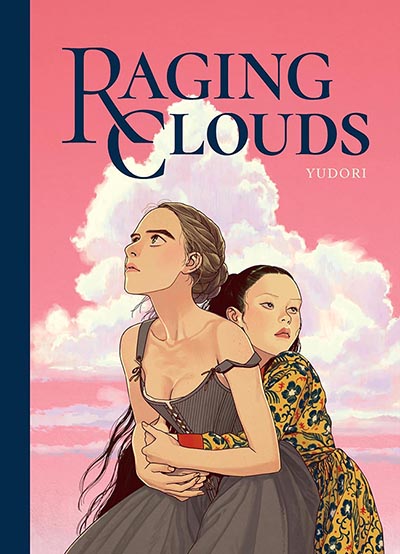
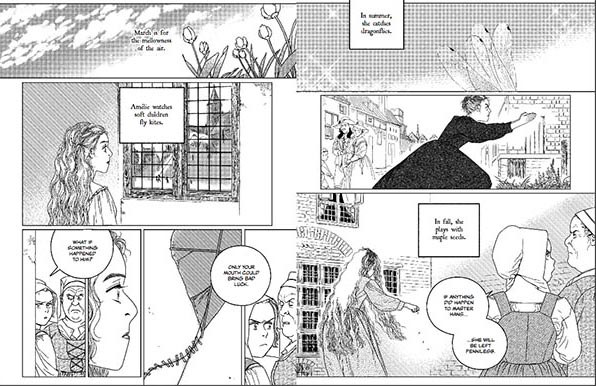
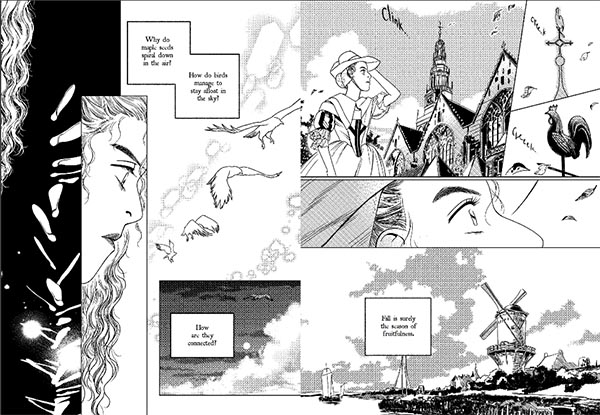
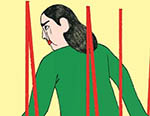
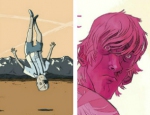

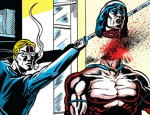



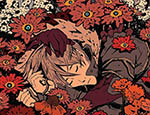
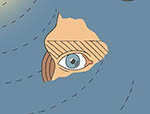
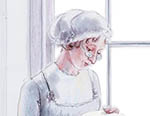
I wasn’t sold on this book from the cover image alone, however it’s going on the to-read pile after this insightful review! Hope to see many more contributions from Swati Nair in the future.